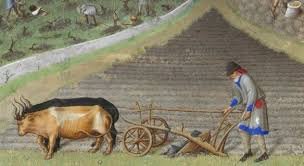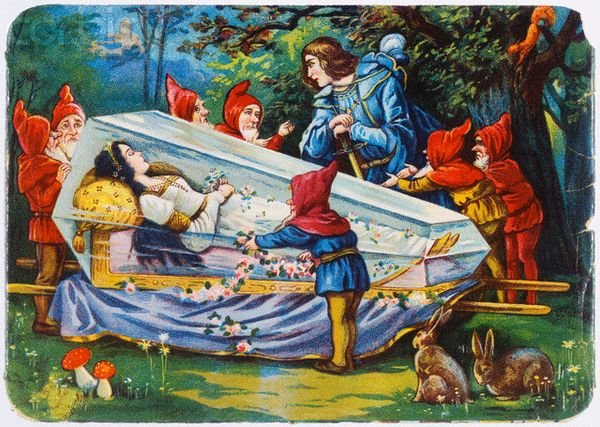The Anoethau in Culhwch and Olwen[i]
This is the second problem sequence I’m working through. (See previous post for the first.)
In Culhwch ac Olwen, the Giant Ysbaddaden gives Culhwch forty impossible tasks which are referred to by editors and within the text as Anoethau[ii]
After Ysbaddaden stipulates the first task, Culhwch replies:
Hawd yw gennyf gaffel hynny, yd tybyckych na bo hawd.
It is easy for me to get that, though you may think it is not easy.[iii]
Ysbaddaden responds:
Kyt Kkffych hynny, yssit ny cheffych.
Though you may get that, there is something you will not get.
Each subsequent task is wrapped by these lines. So both phrases are repeated approximately forty times, which is repetition driven to excess. Would it be too much to ask of a modern reader?
If anyone knows of a poem that repeats the same 2 lines forty times or more, I’d like to read it.
I was tempted to cut the list of tasks down to only those which are actually performed in the story.
However.
Perhaps anachronistically, we can see the strange dialogue that develops in dramatic terms. It is a clash between two characters who have irreconcilable objectives. As a result of this exchange, one of them must die. Culhwch knows he will never marry anyone except Olwen. He’s been told several times that most men who come on the quest to marry her have been killed.
During their brief meeting, Olwen had given him some advice. Ask for my hand in marriage. Whatever he asks in return, promise you’ll get it. But if he has cause to doubt you, me you won’t get and you’ll be lucky to escape with your life.
Both Culhwch and Ysbaddaden know the latter will die when his daughter gets married. He is understandably inhospitable to any suitor. For unstated reasons, he is compelled to enter into a contract with the suitor and offer him the opportunity to complete an impossible task. If the suitor flinches or fails, the giant can kill him.
So there is obvious conflict. It’s a ‘high stakes’ confrontation.
The dialogue begins with Ysbaddaden stating an obvious impossibility. He wants a field cleared, ploughed, sown and the resultant crop reaped all in one day. Instead of protesting, Culhwch, says: It is easy for me to get that, though you may think it is not easy.
Perhaps wondering if the boy has understood, the giant then explains why it is impossible: you need this man to prepare the field, he won’t do it of his own free will, and you can’t make him. Culhwch repeats his phrase. You also need this man to fix the plough and he won’t come and you can’t make him. And Culhwch, like a naked man in a hailstorm, refusing to flinch, repeats: It is easy for me….
And so on. Things needed for the wedding feast; things needed to shave his beard; dogs, people, horses and things needed to hunt the Twrch Trwyth.
Ysbadadden keeps going, waiting for the boy to crack, and Culhwch stands his ground and repeats the same response. He’s hiding behind it because, of course, he can’t do any of these things.
As the boy refuses to crack, Ysbaddaden must see his own death coming towards him like a slow train on a very straight track over a very flat landscape
He plays his final card. It’s obvious the boy can’t do any of these things on his own.:
You need Arthur and his men to hunt the great boar. And he won’t come, because he’s my man. (The phrase he uses is ‘he’s in my hand’).
But Culhwch still refuses to flinch, still repeats his mantra. The giant, running out of ideas, reaches for absurdity, a desperate explosion of nonsense. He’s been pounding away, and now he must realise that he’s been punching the side of a mountain.
Though you get all that, there’s something you won’t get.
The Twrch Trwyth will never be hunted unless you obtain
Defective, Perfected and Completed,
sons of Broken Sword, grandsons of Perfect Sword
Three shining whites their shields
Three stabbing piercers their spears
Three keen carvers their swords
Their three dogs: Silver, Salmon and Smoky
Their three horses: Sharp, Speedy and Steed
Their three wives: Late Bearer, Ill Bearer and Full bearer
Their three crones: Alas, Scream and Shriek
Their three serving girls: Bad, Worse and Worst of all.
These three men will sound their horns,
And all the others will cry out,
so no one will care if the sky falls in.
I can get that easily enough, although you seem to think I can’t.
Ysbaddaden makes one final attempt, saying what they both know:
Sleeplessness without rest you will get in seeking these things,
and you won’t get them, and you won’t get my daughter.
But Culhwch, who has already shown he’s not the most tactful or polite of young men, now sticks the boot in:
Horses and hounds I will get.
And Arthur,
my Lord and Kinsman,
will get everything for me.
And I will have your daughter,
and you shall lose your life.
I’m becoming very pro-giant.
I think the dialogue has a structural coherence and a dramatic context, but whether that underlying drama is strong enough to carry a reader through the repetition remains to be seen.
[i] (When I started working through the Tasks I read this essay, which seems to suggest a similar approach. Dehghani, Fiona. “The Anoetheu Dialogue in Culhwch Ac Olwen.” Proceedings of the Harvard Celtic Colloquium, vol. 26/27, 2006, pp. 291–305. JSTOR, http://www.jstor.org/stable/40732062.)
[ii] GPC offers: wonderful thing, wonder, jewel, treasure; something difficult to obtain or achieve, feat, exploit; wondrous, wonderful, strange, unusual, ?difficult.
[iii] This is Sioned Davies’ translation. Other translations are my work in progress.






